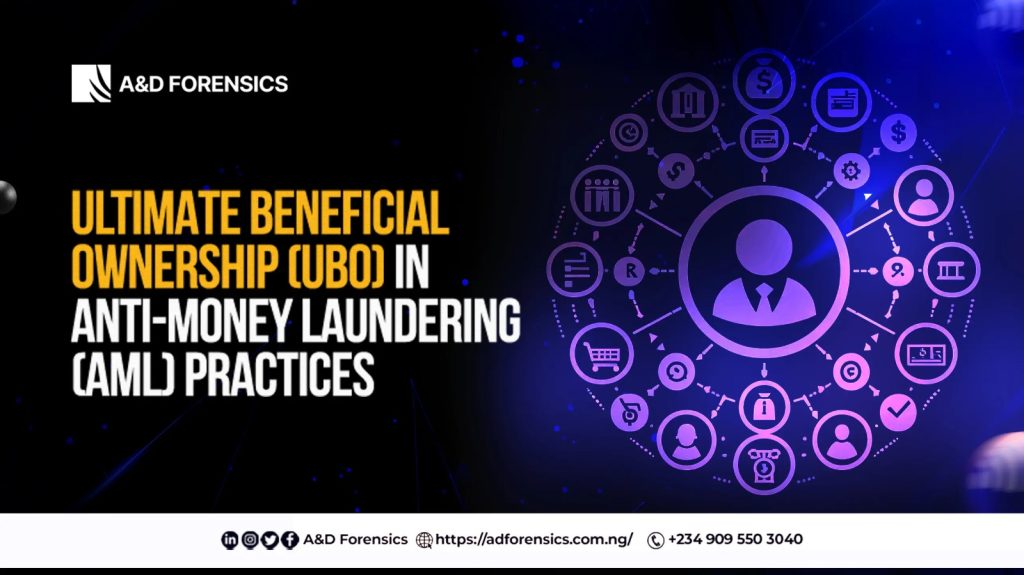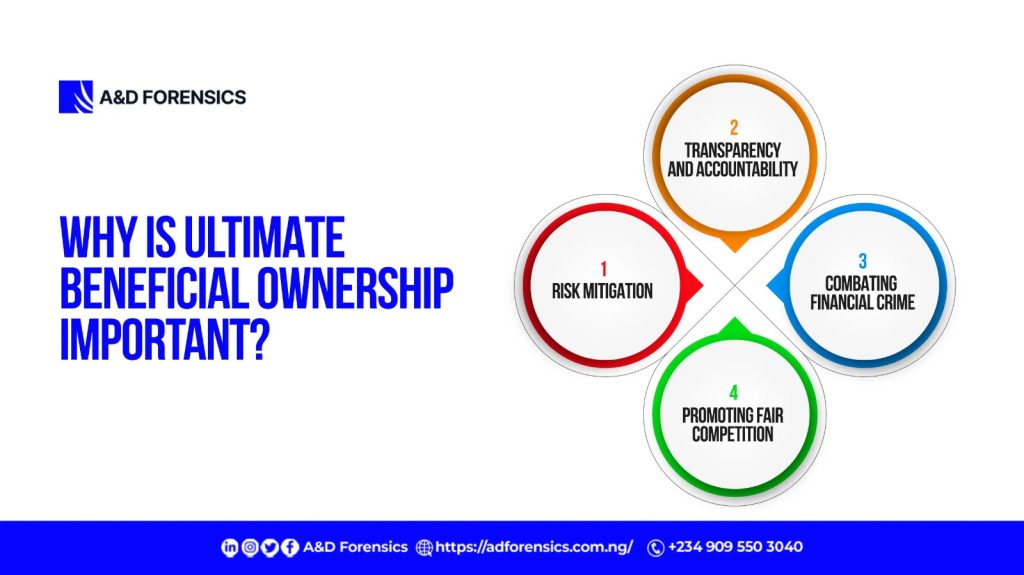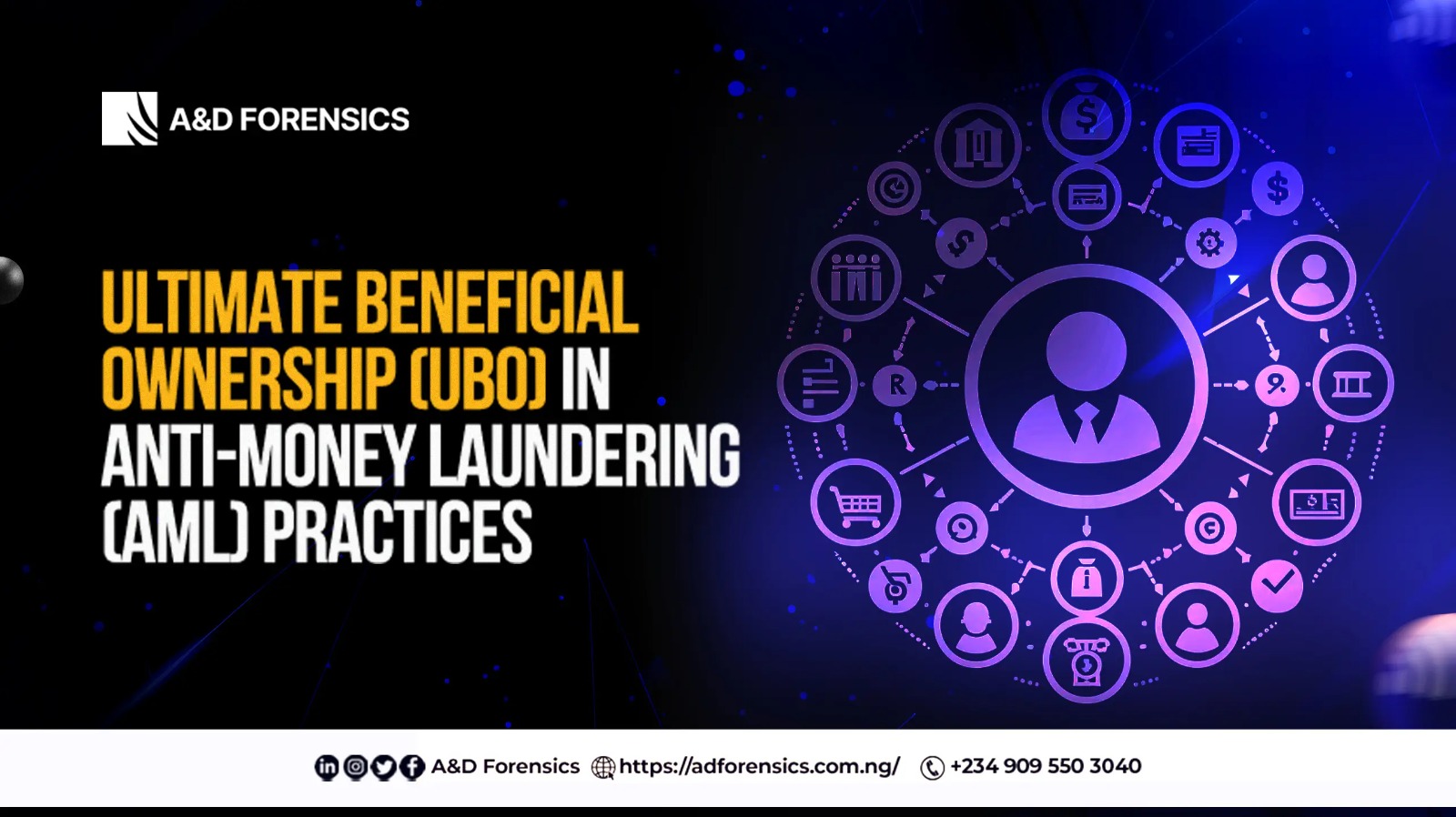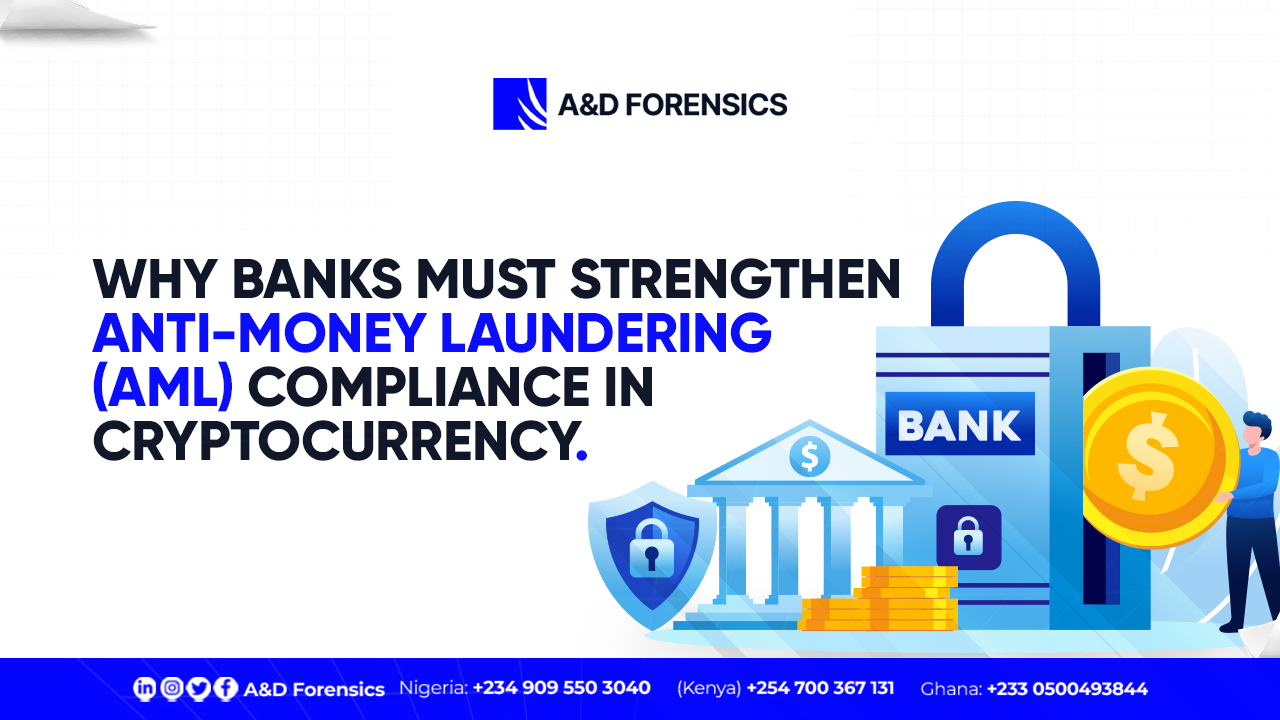Ultimate Beneficial Ownership (UBO) is a key element of today’s financial systems. However, with modern corporate structures and complex financial transactions, identifying the individuals who truly benefit from a company’s assets can be challenging. This is why regulators require processes like Know Your Business (KYB) and Know Your Customer (KYC) to help identify and verify UBOs in business transactions.
Ultimate beneficial ownership is a very common AML activity carried out by compliance professionals to prevent money laundering and terrorist financing. The ultimate beneficial owner refers to an individual who has ultimate authority over an organization whenever transactions are made.

What Is Ultimate Beneficial Ownership?
Ultimate Beneficial Ownership refers to the person(s) who ultimately own or control a legal entity or arrangement, such as a company, trust, or foundation. It delves beyond the immediate shareholders or directors, aiming to uncover the individuals who truly benefit from the entity’s assets, income, or control.
Who is a Beneficial owner?
According to Central Bank Nigeria, Beneficial owner refers to the natural person(s) who ultimately owns or controls a customer and/or the natural person on whose behalf a transaction is being conducted. It also includes those persons who exercise ultimate effective control over a legal person or legal arrangement.
Beneficial Ownership vs. Legal Ownership.
Understanding the difference between beneficial and legal ownership is crucial for compliance professionals. Legal ownership refers to individuals listed in official records as asset owners, making it straightforward to track. Beneficial ownership involves those who truly control and benefit from the asset, often hidden behind other entities or complex structures. Recognizing this distinction helps in effectively detecting and addressing concealed illicit activities.
4 Importance of Ultimate Beneficial Ownership.

For compliance professionals, Ultimate Beneficial Ownership is crucial for assessing risk and ensuring regulatory compliance. It reveals the true individuals behind corporate structures, providing valuable insights into potential risks associated with entities involved in illicit activities. Some of these importance includes:
- Transparency and Accountability: UBO disclosure fosters transparency by revealing the actual individuals who stand to gain from corporate activities. This transparency, in turn, enhances accountability, making it more difficult for individuals or entities to hide illicit activities such as money laundering, tax evasion, or corruption.
- Risk Mitigation: Understanding UBO helps financial institutions and regulatory bodies assess the risk associated with particular transactions or business relationships. By identifying the true beneficiaries, institutions can better evaluate the potential for financial crime and take appropriate measures to mitigate risk.
- Combating Financial Crime: Criminal organizations often exploit complex corporate structures to launder money or finance illegal activities. UBO disclosure serves as a vital tool in the fight against financial crime, enabling authorities to trace illicit funds back to their ultimate beneficiaries and hold them accountable.
- Promoting Fair Competition: In many jurisdictions, undisclosed beneficial ownership allows unscrupulous individuals or entities to gain unfair advantages in the market. By mandating UBO disclosure, regulators promote fair competition by ensuring that all market participants operate on a level playing field.
FinCEN’s Guidance on Ultimate Beneficial Ownership Reporting Requirements.
The Treasury’s Financial Crimes Enforcement Network (FinCEN) recently released a Small Entity Compliance Guide to aid the small business community in adhering to the beneficial ownership information (BOI) reporting rule. The new FinCEN guide expands on earlier guidance and includes detailed information on:
- Who Must Report: Domestic and foreign companies, including corporations and LLCs, must report their beneficial owners (UBOs), defined as individuals with substantial control or at least 25% ownership. Certain companies must also report their company applicants. The guide covers exemption categories and specific reporting rules.
- What Should Be Reported: Companies must detail their UBOs and, if applicable, company applicants. The guide explains the definitions of substantial control and ownership interest, and outlines the required information for a compliant report.
- How and When to File: Reporting begins January 1, 2024. Existing companies must file by January 1, 2025, while new companies have 30 days from their registration date. The guide includes instructions for correcting inaccuracies within 90 days of discovery.
- Penalties for Non-Compliance: The guide details potential penalties for failing to comply with the reporting requirements.
Financial Action Task Force Guidance on Ultimate Beneficial Ownership.
This guidance works alongside the existing guidance for Recommendation 24 on legal entities and aims to assist both public and private sector stakeholders in effectively implementing the new requirements. FATF has also updated its risk-based guidance for this recommendation
- The guidance seeks to help countries and the private sector better understand how transparency requirements apply to legal arrangements.
- It provides practical advice on understanding and evaluating the risks of money laundering and terrorist financing associated with trusts and similar legal arrangements.
- Additionally, it explains FATF’s requirements for obtaining adequate, accurate, and up-to-date beneficial ownership information for express trusts and similar legal arrangements, and it highlights methods for verifying this information.
- Furthermore, the guidance emphasizes the importance of international cooperation, as such arrangements could potentially be exploited to facilitate cross-border money laundering or terrorist financing.
- It reflects input from public consultations and extensive engagement with the private sector and other stakeholders, completing a comprehensive effort to improve global transparency of beneficial ownership.
FATF’s enhanced standards and guidance will help identify corrupt actors, sanctions evaders, money launderers, and tax evaders who use shell companies, complex structures, or trusts to conceal their illicit activities.
4 Ways to Identify Ultimate Beneficial Owners.
Compliance professionals can identify Ultimate Beneficial Ownership through these steps:
- Verifying the Legal Entity: To ensure a company’s legitimacy and the accuracy of its records, gather essential information, which may vary by jurisdiction and fraud regulations. Generally, the following details should be collected:Registration Number, Name, Address Type and List of Top Management.
- Researching the Ownership Chain: Utilize documents or registry information to identify individuals with shares or interests in the company, determining whether their control is direct or indirect. If shares are held by intermediary legal entities, analyze the full ownership structure to trace back to the controlling natural persons (the UBOs).
- Identifying the Ultimate Beneficial Owner: Determine the percentage of shares, ownership stakes, or indirect control held by each individual to identify if any fall under the definition of UBO.
- Performing a KYC Check: All identified UBOs must undergo a comprehensive Know Your Customer (KYC) check, involving Customer Due Diligence (CDD) to collect, verify, and monitor customer information. For high-risk UBOs, Enhanced Due Diligence (EDD) should be applied.
Challenges in Determining Ultimate Beneficial Ownership.
Despite its importance, determining UBO can be challenging for compliance professionals, due to several factors:
- Complex Corporate Structures: Companies often employ intricate ownership structures involving multiple layers of subsidiaries, trusts, and nominee shareholders, making it difficult to identify the true owners.
- Nominee Arrangements: Nominee shareholders or directors are individuals or entities who hold shares or act as directors on behalf of others. While legal, nominee arrangements can obscure the identity of the ultimate beneficiaries.
- Offshore Jurisdictions: Entities established in offshore jurisdictions may offer confidentiality and minimal disclosure requirements, facilitating anonymity for beneficial owners.
- Limited Regulatory Oversight: In some jurisdictions, regulatory oversight and enforcement mechanisms may be inadequate, allowing entities to operate with opacity regarding their ownership structure.
- Lack of Comprehensive Database: The lack of a centralized database often leaves gaps in information, making it harder to piece together the full picture of who ultimately controls an entity, especially when ownership spans across borders with different regulatory standards.
How can A&D Forensics Help with your AML Compliance?
Compliance professionals across various finance sectors in Africa can reach out to us for compliance consultation on the proper identification of Ultimate Beneficial Ownership.
Conclusion
As a compliance professional, understanding Ultimate Beneficial Ownership (UBO) is crucial for ensuring transparency and accountability in finance. It plays a key role in combating financial crimes such as money laundering and terrorism financing. Despite challenges posed by complex structures and offshore entities, recent initiatives are focused on streamlining reporting rules and enhancing transparency.
Contributor: Ibrahim Anuoluwapo Azeez.






